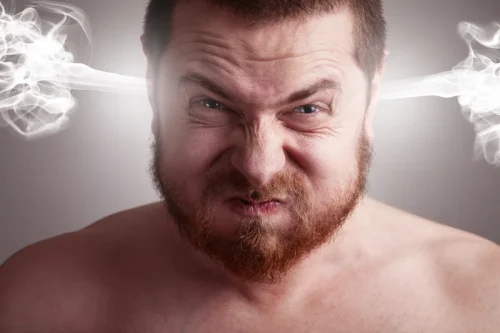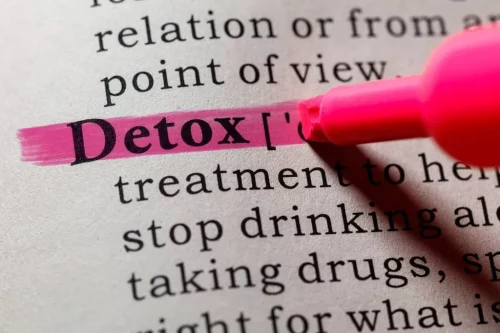Drinking during pregnancy may result in fetal alcohol spectrum disorder. The physical dependence accompanying tolerance is profound, and alcohol withdrawal has potentially fatal adverse effects. Reducing drinking, or even eliminating it altogether, can lower a person’s risk of these conditions and complications. Some people may be at risk of alcohol overdose after just a few drinks, especially if they are young, small, or do not often drink. The amount of alcohol a person drinks is the biggest predictor of BAC.

How Much Do I Have to Drink to Experience Withdrawal?
If you feel that you sometimes drink too much alcohol, or your drinking is causing problems, or if your family is concerned about your drinking, talk with your health care provider. Other ways to get help include talking with a mental health professional or seeking help from a support group such as Alcoholics Anonymous or a similar type of self-help group. Alcohol intoxication, also referred to as drunkenness, ethanol intoxication, or alcohol poisoning in severe cases, is a temporary condition caused by drinking too much alcohol. The amount of alcohol needed for intoxication varies from person to person.
What Is “High-Intensity” Drinking?
- Your whole body absorbs alcohol, but it really takes its toll on the brain.
- Recovery begins when you have an honest desire to change and seek help.
- If you feel that you sometimes drink too much alcohol, or your drinking is causing problems, or if your family is concerned about your drinking, talk with your health care provider.
- Fielder-Civil filed for divorce in 2009, citing Winehouse’s infidelity.
Too much alcohol affects your speech, muscle coordination and vital centers of your brain. A heavy drinking binge may even cause a life-threatening coma or death. This is stages of alcohol intoxication of particular concern when you’re taking certain medications that also depress the brain’s function. “There is no designated ‘safe’ level of drinking,” says Dr. Donald.
Understand the Risks of Alcohol Abuse
- In this stage, an individual can feel they have lost control over their alcohol consumption.
- If a person suspects someone has alcohol poisoning they should call an ambulance.
- It’s also in mouthwash, some cooking extracts, some medicines and certain household products.
- But if a person drinks very quickly, they can get to this stage before long.
- It is a regular practice to give small amounts of beer to race horses in Ireland.
Low blood sugar is another sign of possible alcohol poisoning. Also known as drunkenness, alcohol intoxication is the negative behavior and physical effects caused by drinking alcohol. The stages range from moderate consumption and occasional binge drinking to severe AUD.

This article explains the different stages of alcohol misuse and how to find support if a person needs it. These stages may lead to alcohol use disorder in some people. Stopping alcohol use and treating psychotic symptoms with antipsychotic medications can successfully treat alcohol-use psychosis.
When is Alcohol Intoxication a Sign of Alcoholism?
The 24-year-old performed via remote satellite for the live broadcast and left with five trophies, tying the then-record for most wins by a female artist in a single night. Her hallmark hit, “Rehab,” won Song of the Year, Record of the Year, and Best Female Pop Vocal Performance. During one of her acceptance speeches, she thanked her “Blake, incarcerated,” who was in jail due to a bar fight in 2006.
Phase 3: Coping Method—A Slow Descent With Few Warning Signs

In some people, the initial reaction may feel like an increase in energy. But as you continue to drink, you become drowsy and have less control over your actions. In people affected, it is important to also check for underlying alcohol abuse. It can be hard to decide if you think someone is drunk enough to need medical help. But it’s best to take action right away rather than be sorry later.
For others, however, it can be something as dangerous as a decision to drive home. This decision, coupled with a decrease in motor function, coordination, and reaction time, leads to many car crashes. Around 30 people per day die from drunk-driving accidents in the United States.
- Typically, subjective complaints precede physical findings in the eye.
- Alcohol will stay in urine for up to 80 hours and in hair follicles for up to three months.
- People may feel euphoric while drinking alcohol because ethanol stimulates the release of dopamine, a feel-good chemical in the brain.
- Theirs was an on-and-off relationship at first, as they were frequently separated by his infidelities and stints in prison.
A 2016 study found that very intoxicated people underestimate how drunk they are, how extreme their drinking is, and how likely their drinking is to affect their health. Because alcohol changes the way the brain processes information, it also makes it difficult for people to make suitable decisions or assess their own behavior. For example, people who are very drunk might underestimate how intoxicated they are. Because denial is common, you may feel like you don’t have a problem with drinking. You might not recognize how much you drink or how many problems in your life are related to alcohol use. Listen to relatives, friends or co-workers when they ask you to examine your drinking habits or to seek help.
